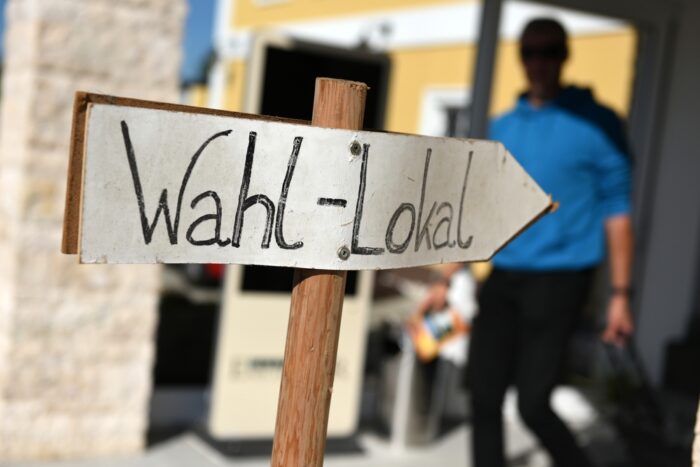The Progressive Post
🇧🇪 A divided country, united to the right

Being able to construct a dam against the extreme right but still being flooded by the right-wing wave: that is the reality in Belgium. For the first time, it is the same story for the north and south of the country. The first thing that drowned was progressive ideologies.
In most member states, the EU elections are a referendum about national politics. In Belgium, a country with compulsory voting, the EU elections are nothing different than national politics. Considering the complexity of the country’s political system, national politics are regional politics, which applies to the EU elections as well. The consequences are extensive, and the EU elections are quintessentially secondary, or as a matter of fact, tertiary elections.
The first consequence is that none of the EU topics have visibility during the campaign, with exceptions of global conflicts and some agricultural legislation. So, the main topics of the European campaign are simply the national ones or, even more, the regional hot topics. This leads to a point where not much interest in the EU level is shown, as many national politicians find that ‘the EU elections do not lead to any useful visibility for national and regional politicians’.
Secondly, national and regional results are similar to European results, with only minor differences. The two major winners of the EU elections in Flanders are the Flemish nationalist NV-A (New Flemish Alliance) and Vlaams Belang (Flemish Interest), with approximately 22 percent each. They are followed by the Social Democrat Vooruit (Forward), with almost 13 percent and a gain of 1 seat in the EP, bringing its total to 2 seats.
Saying that NV-A is simply a neo-liberal party with Flemish-nationalistic roots is not accurate, seen the history of the party and its leading figures. The party is a lot further to the right than a classic liberal party, certainly socially but also economically. This partially explains NV-A’s success and the implosion of the traditional liberal party in Flanders, the party of the incumbent prime minister. NV-A is part of the ECR group in the EP. Vlaams Belang is a far-right party with neo-Nazi roots and is part of the ID group.
Wallonia’s winner is the liberal MR (Reformist Movement) party with 35 per cent of the votes. It’s important to mention that Wallonia has no far-right party, so the MR is the furthest to right on the political spectrum. Significant gains are also noted for ‘Les Engagés’, the Christian democrats. The Social Democrat PS (Socialist Party) lost 6 per cent, but kept its two seats in the EP, with 20 per cent of the votes. Sophie Wilmès (MR), Belgium’s first female prime minister, received the most preferential votes on the EU lists, making her the leading candidate to become Belgium’s Commissioner-designate.
The main surprises come from the right. The NV-A, who polled second for many years with a big gap behind Vlaams Belang, ended up in first place. This is nothing less than a masterpiece of political strategy, giving them the leading position in government formation. It will keep Vlaams Belang out of power, since the unwritten agreement between all parties of a Cordon Sanitaire, excludes Vlaams Belang from government. This creates a successful dam against the extreme right and is the only positive outcome. The major shift to the right is concerning, however. In Flanders, almost 45 per cent of the voters cast their ballot for the hard right and the extreme right (over 22 per cent each), while only 12 per cent voted for the Social Democrats, 10 per cent Green and 8 per cent radical left. The rest of the votes went to centre-right parties.
In Wallonia, a traditional leftist stronghold in Europe, a whopping 35 per cent of the people voted right-wing liberal, 20 per cent Social Democrat, 15 per cent radical left and 10 per cent Green. The rest of the votes went equally to centre-right parties. This result is obviously less right-wing than in Flanders, but still a major landslide. It needs to be mentioned that people in major cities in both parts of the country, including Brussels, did vote significantly more left-wing.
However, leftwing and progressive ideology clearly did not win the elections. A part of their potential votes was caught by the radical left, and most of the votes went to the liberal right in Wallonia and to the nationalistic (far-) right in Flanders. The, albeit small, gains of the Social Democrat party in Flanders were only taken from the other parties in the political centre and not from where leftwing forces should take the votes from: the right and extreme right. So, there is more or less a Social Democrat status quo in Belgium. Nevertheless, in Flanders there is a sense of victory, despite the only slight gains (up 3 per cent). Clearly, any gain of the left in these times is seen as a victory. This is a tendency that is good for the confidence of Social Democrats, and it surely does help to establish a stronger negotiation position during government formation talks, but it clearly does not lead to any better social policies and progress, neither in Belgium nor in Europe.
It is striking and reassuring that the announced growth of radical right-wing parties has not continued equally in all European countries. The pro-European parties remain larger than the Euro-critical parties. There is, therefore, no broad anti-European sentiment.
Photo Credits: Shutterstock.com/skyfish




